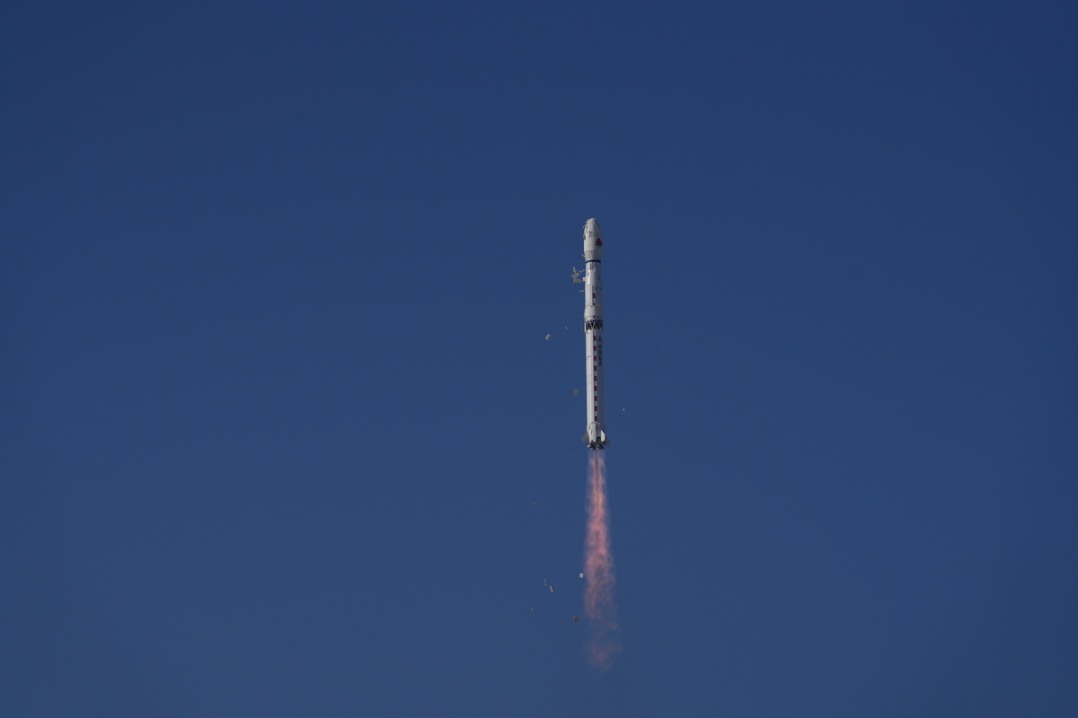North China moves to fight winter air pollution
Share - WeChat

BEIJING -- Beijing, Tianjin and Hebei have rolled out measures to fight air pollution as the most heavily polluted season, winter, is coming.
The port city of Tianjin will restrict production in heavily polluting industries, including steel, casting, construction materials and coking, according to a local government action plan to curb air pollution during the four-month central heating season that usually starts on November 15.
Steel output will be slashed by half, it said.
Data showed that pollutants from the burning of coal increase by 30 percent during winter, said Yang Yong, an official with Tianjin Environmental Protection Bureau.
Without output limits, one of the most effective ways to reducing pollution, the amount of pollutants would exceed the environmental capacity, said Yang.
Most of the industries affected are suffering from overcapacity and the limits would not lead to a marked shortage of supply, he said.
Hebei, home to several of cities in China's top 10 most polluted, has issued similar measures for heavily polluting industries.
The province is also ordering its rural regions near Beijing to use electricity and natural gas to replace burning coal, a major cause of smog in winter.
In Beijing, developers will even be banned from land auctions if three or more of their projects are found to be failing to control dust.
The Beijing-Tianjin-Hebei region sits at the heart of the North China Plain where air pollution, particularly winter smog, often occurs as a result of the high concentration of industrial and vehicle emissions, limited air circulation and the burning of coal.
Local governments are taking harsher measures to fight air pollution with more residents increasingly worried about the health impacts, particularly of PM2.5, airborne particles smaller than 2.5 microns in diameter.
China has set a target to reduce the level of PM 2.5 pollution by at least 15 percent in the cities around the Beijing-Tianjin-Hebei region between October 2017 and March 2018.
The port city of Tianjin will restrict production in heavily polluting industries, including steel, casting, construction materials and coking, according to a local government action plan to curb air pollution during the four-month central heating season that usually starts on November 15.
Steel output will be slashed by half, it said.
Data showed that pollutants from the burning of coal increase by 30 percent during winter, said Yang Yong, an official with Tianjin Environmental Protection Bureau.
Without output limits, one of the most effective ways to reducing pollution, the amount of pollutants would exceed the environmental capacity, said Yang.
Most of the industries affected are suffering from overcapacity and the limits would not lead to a marked shortage of supply, he said.
Hebei, home to several of cities in China's top 10 most polluted, has issued similar measures for heavily polluting industries.
The province is also ordering its rural regions near Beijing to use electricity and natural gas to replace burning coal, a major cause of smog in winter.
In Beijing, developers will even be banned from land auctions if three or more of their projects are found to be failing to control dust.
The Beijing-Tianjin-Hebei region sits at the heart of the North China Plain where air pollution, particularly winter smog, often occurs as a result of the high concentration of industrial and vehicle emissions, limited air circulation and the burning of coal.
Local governments are taking harsher measures to fight air pollution with more residents increasingly worried about the health impacts, particularly of PM2.5, airborne particles smaller than 2.5 microns in diameter.
China has set a target to reduce the level of PM 2.5 pollution by at least 15 percent in the cities around the Beijing-Tianjin-Hebei region between October 2017 and March 2018.
Related Stories
- Historic role of Shenyang Trial site emphasized
- Forum touts Macao for global cultural dialogue
- Shaxian's mouthwatering snacks lure entrepreneur
- Cluster of ancient stone city sites found in Yulin
- Chinese family bonds withstand test of time
- Minecraft challenge breathes new life into rich cultural past





































